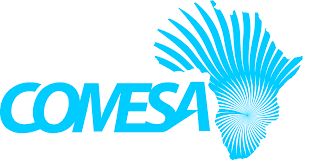Africa Energy Forum: Dr. Sandrine Mubenga and Panelists Discuss Tailored Solutions for Energy-Intensive Sectors
this is index.php Participating in the 27th edition of the Africa Energy Forum (AEF), held from June 17 to 20, Dr. Sandrine Mubenga Ngalula seized the opportunity to address two key objectives: developing strategies for energy-intensive sectors and inviting participants to invest in DRC.
Participating in the 27th edition of the Africa Energy Forum (AEF), held from June 17 to 20, Dr. Sandrine Mubenga Ngalula seized the opportunity to address two key objectives: developing strategies for energy-intensive sectors and inviting participants to invest in DRC.
The Chief Executive Officer of the Electricity Regulatory Authority (ARE), Professor Sandrine Mubenga Ngalula, took an active part in the discussions at the 27th AEF. The objective was to explore how to bridge the energy deficit. Alongside other panelists, she reflected on high-consumption sectors, under the theme: Meeting the Needs of the Next Generation of Energy-Intensive Consumers ». Discussions focused on large hydropower projects, small hydro, and the renewed interest in nuclear energy for electricity production.
Regarding large hydropower projects, the ARE DG took the floor to highlight the critical contribution of this energy source, illustrating her remarks with the Inga 3 project:
“In DRC, where we have significant hydropower potential, we are seeing major projects like Inga 3, with 11,000 MW. The World Bank has already begun working with our government on the study phase,” she explained. The Agency for the Development and Promotion of the Grand Inga Project (ADPI) are leading this project.

Concerning the contribution of hydroelectricity, Dr. Mubenga emphasized the DRC’s vast potential—up to 100,000 MW—and the many suitable sites for the development of small and large hydropower plants.
She also raised the question of nuclear energy, in discussions with representatives of globally recognized companies in the sector. According to the CEO of ARE, nuclear energy is experiencing a global resurgence, particularly in Africa, and it would be advantageous for DRC to consider this option due to its many benefits.
“We also discussed SMRs. SMRs are Small Modular Reactors, which generate nuclear energy for baseload. In Congo, we have significant nuclear resources such as uranium. Just a small amount of uranium is enough to generate energy for a long time,” she stated.
Dr. Mubenga also presented to participants several regulatory innovations she has implemented to help fast-track investor projects and enable the rapid deployment of power plants in DRC, with the goal of increasing the electrification rate. One example was the digitalization, streamlining and standardization of tripartite contracts which reduced the processing time from 6 months to under 1.5 months. Another example was the recent revision of the Electricity Law in February to address renewable energy, energy transition, Mini grids, carbon market etc.,

ARE–Mining Sector Collaboration
Furthermore, the CEO of ARE shared that a significant portion of the discussion focused on the mining sector.
“I explained,” she said, “that the mining sector in DRC is dominant, vital to the economy, and highly impactful. We work with many mining companies to help them find energy solutions. We created a platform between ARE, the FEC (Federation of Enterprises of Congo), and mining companies, which meets regularly to discuss various challenges and identify solutions. These meetings are held directly in our Southern Pool based in Kolwezi,” she explained, before adding:
“I invited the entire audience to join us in Kinshasa next week (June 24 to 26, 2025) for the DRC Energy Week, and I encouraged them to invest in the DRC’s electricity sector.”
As for Ms. Allegria Ntumba, Administrative and Financial Director, she also participated in panel discussions focused on the theme: How to Build a Robust Renewable Energy Ecosystem to Meet the Energy Needs of the Mining Sector ». According to her, as regulators, they support mining companies seeking to generate their own energy (IPPs), enabling them to achieve energy independence. The mining sector is energy-intensive but plays a significant role in DRC’s socio-economic development.
“To date, DRC is a model country when it comes to clean and renewable energy: hydropower accounts for 88%, thermal energy 11%, and solar less than 1%,” she noted.
“As regulators,” she concluded, “we continue to collaborate with all stakeholders and support various renewable energy projects to reduce mining companies’ reliance on fossil fuels and energy imports.”
COMMUNICATION / ARE






À propos de l’auteur